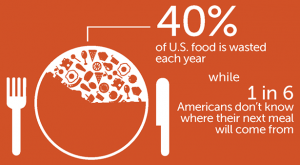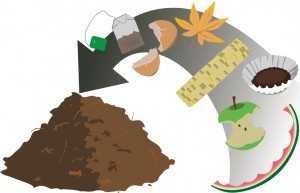Selling Food Online: How to Reduce Waste
Selling Food Online: How to Reduce Waste
There was a time when people did not bother to ask where their food was coming from. They went to the local supermarket and picked up what they needed without considering how it was produced, where, or how far it traveled. With a rise in organic and natural products, people are becoming aware of what is on their plate. They look for labels like “organic,” “no artificial flavors or preservatives,” and “non-GMO.” Consumers are scrutinizing business practices if they do not follow these new standards.
Every business needs to be aware of the waste they are creating. This can be tricky in the food industry, where a lot of waste comes from. Even those who are selling food online need to consider their environmental impact. Consumers want to be aware of the ethics of the businesses they buy from. Entrepreneurs need to reflect the values of their customers in order to gain their loyalty.
Dropshipping Reduces Waste
Drop shipping is a good way to eliminate food waste altogether. This way, you do not need to keep an inventory. Having a supplier of grocery products is convenient because you do not have to worry about when they will perish. Overstocking is the main cause of having unsellable products. Your supplier should typically have an idea of the amounts they need to satisfy customers while keeping a low inventory.
Three Levels of Waste
According to the United States Environmental Protection Agency (EPA), there are three levels of waste to be aware of.
- Primary Level – This is food waste that comes from farms or through the cleaning/processing stage.
- Retail Level – This is waste from supermarkets, grocers, and other retailers.
- Consumer Level – This is uneaten food by consumers, whether at home or at a restaurant/cafeteria.
The level that this article is most concerned about is retail, although the others are just as significant. Keeping them all in mind is helpful in picturing the impact they have on the environment. Everyone can prevent on any level when by applying creative solutions.

Solutions that Lessen the Impact
It is easy to think of how a consumer might lessen their environmental impact. They can donate their unused items to canned-food drives, be better about eating leftovers or start composting their scraps. But how can a retailer do this on a larger scale? Once products perish, retailers feel obligated to throw them away because they are unusable. With some effort, they may be able to put them to good use.
41 million people struggle with hunger in the United States,
including 13 million children.
In 2015, 5.4 million seniors struggled to afford enough to eat.
America is one of the highest agricultural producing countries so it makes sense that it is also one of the biggest producers of waste. You would think that since America produces so much food, we would not have a problem with hunger. However, an estimated 41 million people in the United States struggle with hunger.
What Merchants Can Do
Food retailers can help put an end to this problem. Losing some product due to expiration is inevitable. Instead of throwing it all in a landfill, companies should donate it to those who need it most. If a system is developed where product is cleaned out shortly before it becomes inedible, then it can be used to relieve the hungry. This could be really useful in the wake of disasters, as well. When thousands of people lose their food reserves to destruction and water damage, it is a shame to think that some retailers are simply throwing good food away.
Recycling and Composting
Recycling and composting is another way to handle excess product in a useful way. By this point, most companies are aware of recycling and have already implemented it. However, there is always room for improvement, especially on the individual level. Moreover, not everyone knows exactly what materials can or should be recycled. You can consider providing a helpful guide to explain to employees about recycling practices.
Composting requires a bit more work but can be worth it for the results. For example, hauling the waste and compiling it may require an entire team. Not everyone has the resources to do so. If the work seems too intimidating, it can always be outsourced to someone who specializes in it. With some effort, retailers can reduce their environmental impact and become a better company for it.

Less Waste Means More Profit
Not only is having the least amount of waste good for the ecosystem, it also saves you money. There are many possible pitfalls when stocking your own products. Maintaining the facility where they are kept can be a hassle. Temperature control is especially important for items that can melt or degenerate if not handled properly. If you keep too much of one product, you may find that it does not sell as well as you expected or that the demand has lessened over time.
Excess inventory will always be a worry for retailers and suppliers. There is no all-inclusive formula for having the exact amount of product needed, but there are ways to better your company’s impact by having a plan for when overstocking happens.
Conclusion
Consumers care about the environment, so you should, too. Having better business practices such as these makes for a cleaner planet, happier customers, and a more successful company. Having these goals is important. There is truly no reason not to adopt a healthier model.
Interested in dropshipping green products? Learn more today.



